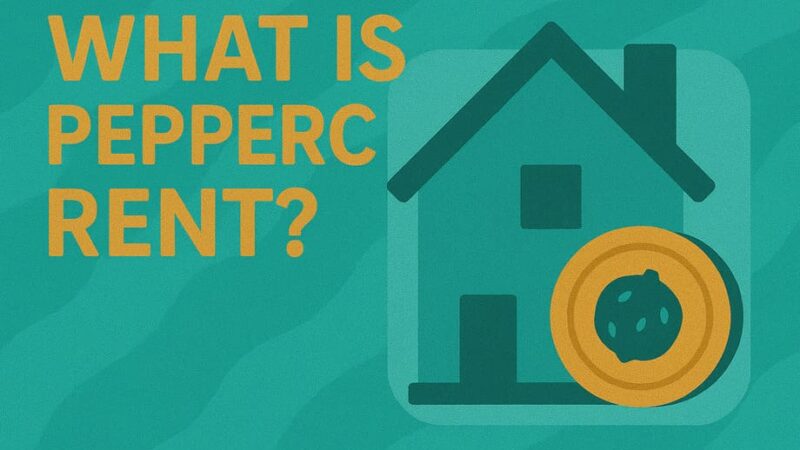Can You Buy a Home With Student Loan Debt in the UK?

Thinking about buying your first home, but worried your student loan might get in the way? You’re not alone. With the average graduate leaving university with tens of thousands in student loan debt, many first-time buyers in the UK wonder if they can realistically get a mortgage while still repaying their student loan.
The good news? Yes, you can buy a home with student loan debt — but there are important considerations. Your student loan won’t stop you from buying a house, but it can affect how much you can borrow and which lenders you qualify with.
This guide will walk you through everything you need to know — from how student debt impacts your mortgage application to practical steps you can take to improve your chances of getting approved.
Table of Contents
How Student Loans Work in the UK
Before diving into how they affect mortgages, it helps to understand how student loans work.
In the UK, student loans are income-contingent — meaning you only repay them when you earn over a certain threshold, and the amount you repay is a fixed percentage of your income above that threshold.
As of 2025:
- Plan 1: You repay 9% of anything over £24,990 per year
- Plan 2: You repay 9% of anything over £27,295 per year
- Plan 4 (Scotland): Same as Plan 1
- Plan 5 (introduced for students from 2023): Thresholds differ, repayments last up to 40 years
Importantly, student loans are not listed on your credit report — but lenders will still factor the repayments into your affordability checks.
Can You Get a Mortgage If You Have a Student Loan?
The Short Answer: Yes
Student loan debt alone won’t disqualify you from getting a mortgage in the UK. Lenders do not treat student loans the same as other types of debt like credit cards or personal loans. But they will still consider the monthly repayments when calculating what you can afford.
How It Affects You:
- Lower affordability: Repayments reduce your net income, so you may qualify for a smaller mortgage
- Loan type matters: Student loans don’t appear on your credit file, but other debts do
- Income level plays a bigger role: High earners with student loans are often better positioned than low earners without them
How Do Mortgage Lenders View Student Loan Debt?
UK mortgage lenders assess your affordability, which includes:
- Income
- Outgoings (including student loan repayments)
- Existing debts
- Deposit size
- Credit history
Student loan repayments are automatically deducted from your salary (via PAYE) or declared if you’re self-employed. So, while they aren’t flagged as traditional debt, they still reduce your monthly disposable income — which can affect how much a lender is willing to offer.
Key point: A student loan won’t appear on your credit report, but it can still impact how much you’re allowed to borrow.
7 Tips for Getting a Mortgage With Student Loan Debt
While student loan debt doesn’t block you from buying a house, it can create challenges. Here are seven practical tips to increase your chances of approval.
1. Know Your Student Loan Plan
Each loan plan has different repayment thresholds. Check which one applies to you and how much you’re currently repaying. This will help you understand how it affects your affordability.
2. Use a Mortgage Affordability Calculator
Many lenders offer online calculators. Enter your income, student loan repayments, and other debts to estimate how much you might be able to borrow. This gives you a realistic budget.
3. Reduce Other Debts First
Student loans aren’t considered “bad debt” — but credit cards, personal loans, and overdrafts are. Reduce or eliminate these to improve your affordability profile.
4. Increase Your Deposit Size
A larger deposit reduces the amount you need to borrow and may unlock better mortgage rates. Even moving from a 5% to a 10% deposit can make a big difference.
5. Build a Strong Credit Profile
While student loans don’t appear on your credit file, other behaviours do. Pay bills on time, avoid unnecessary credit applications, and keep credit utilisation low.
6. Track Your Spending and Budget
Some lenders may ask for 3 to 6 months of bank statements. They’ll be looking for evidence of responsible money management, so avoid unnecessary spending before applying.
7. Consider Government Schemes
Help to Buy (for existing applicants), Shared Ownership, and First Homes schemes are designed to support first-time buyers — including those with student loan debt. These can reduce your deposit and borrowing needs.
Pros and Cons of Buying a Home With Student Loan Debt
Here’s a clear look at the upsides and challenges.
Pros
- Student loans don’t appear on your credit report
- Income-contingent repayments are more manageable than commercial debt
- Lenders assess actual affordability, not just your debt total
- First-time buyer schemes are still accessible
Cons
- Reduced borrowing capacity due to lower net income
- Higher debt-to-income ratio could limit options
- Affordability checks may be stricter, especially for self-employed applicants
- Some lenders may be more cautious, depending on your income and repayment amount
Can Student Loans Affect Your Credit Score?
In short: No. Student loans issued by the UK government do not appear on your credit report from Experian, Equifax, or TransUnion. However, if you have commercial education loans (for example, a postgraduate loan from a private lender), those will show up and could impact your score.
How Much Can You Borrow With a Student Loan?
This depends on your income and other financial commitments. In general, UK lenders offer mortgages of up to 4 to 4.5 times your annual income — but this can be reduced if you have regular outgoings like:
- Student loan repayments
- Credit card balances
- Car finance or personal loans
- Childcare or dependent-related costs
Each lender has its own criteria. Some may be more generous, while others will be conservative if you have high monthly deductions.
Final Thoughts: Buying a Home With Student Debt Is Achievable
So, can you buy a home with student loan debt in the UK? Absolutely. Your loan won’t appear on your credit report, and lenders are mainly focused on your income, expenses, and financial behaviour.
That said, your student loan repayments do impact affordability. The more you’re repaying, the less you might be able to borrow but it’s still possible to secure a competitive mortgage with good planning.
Key takeaways:
- Know your student loan plan and how much you repay monthly
- Focus on building a deposit and reducing other debts
- Choose lenders who understand affordability for graduates
- Consider working with a mortgage broker who can compare deals across the market
With the right preparation, student loan debt doesn’t have to hold you back from homeownership.
Last Updated on October 7, 2025 by James Cartwright







